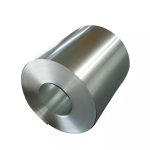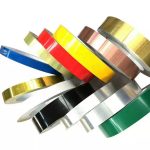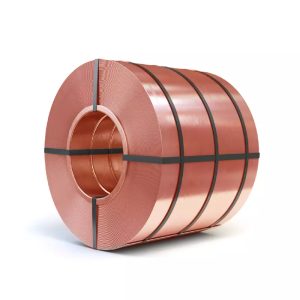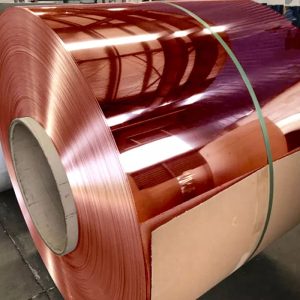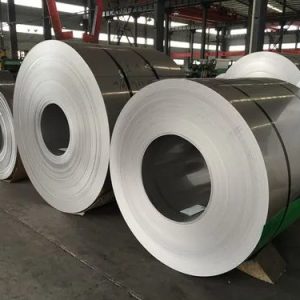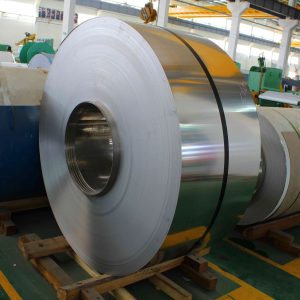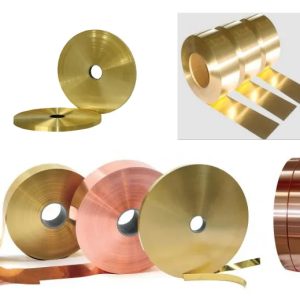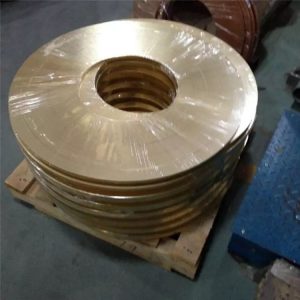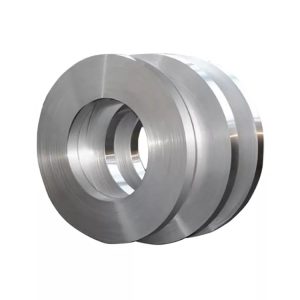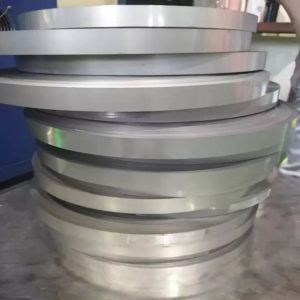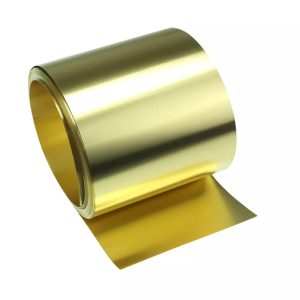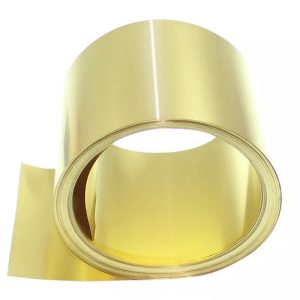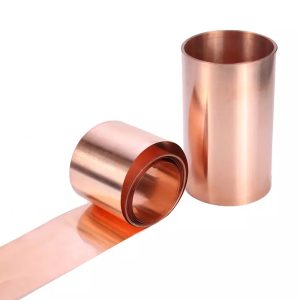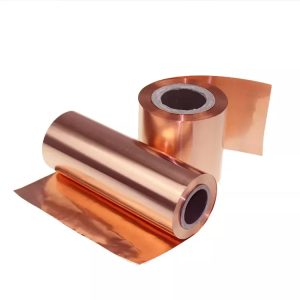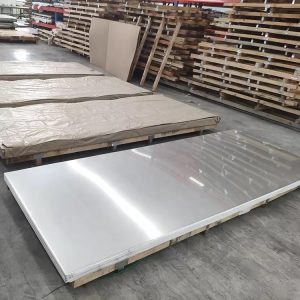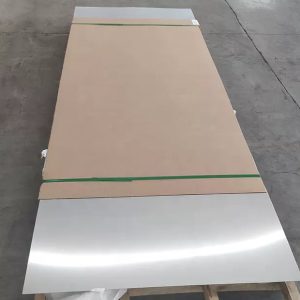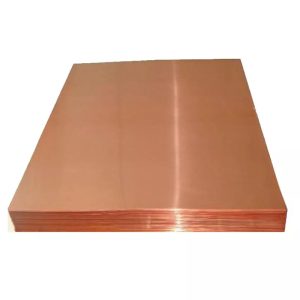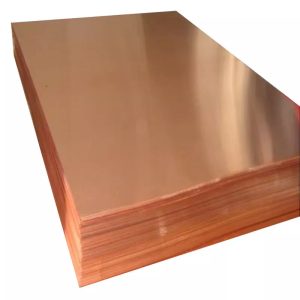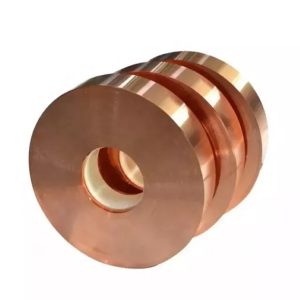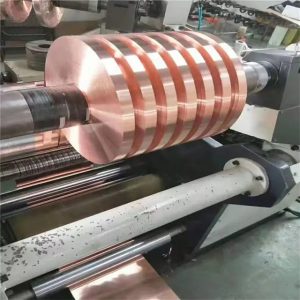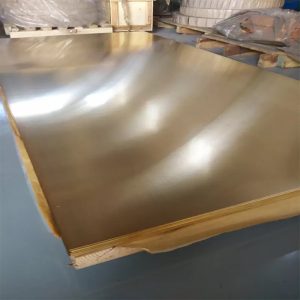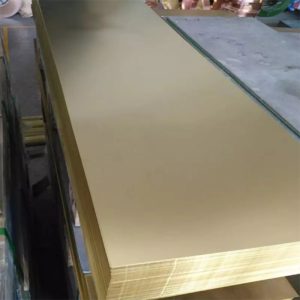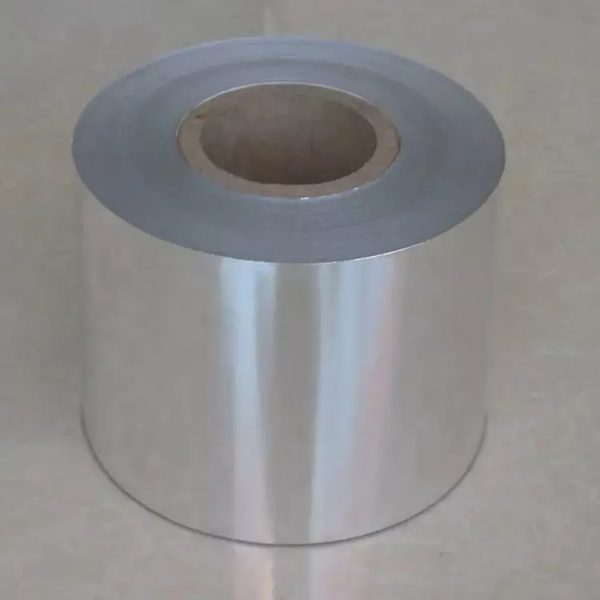
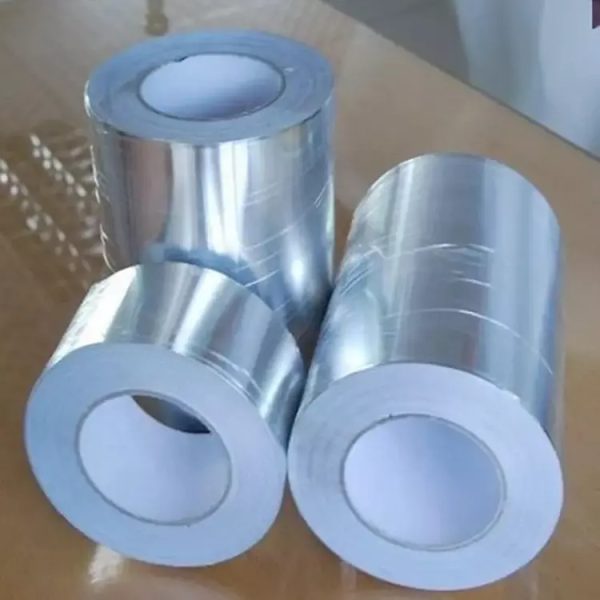
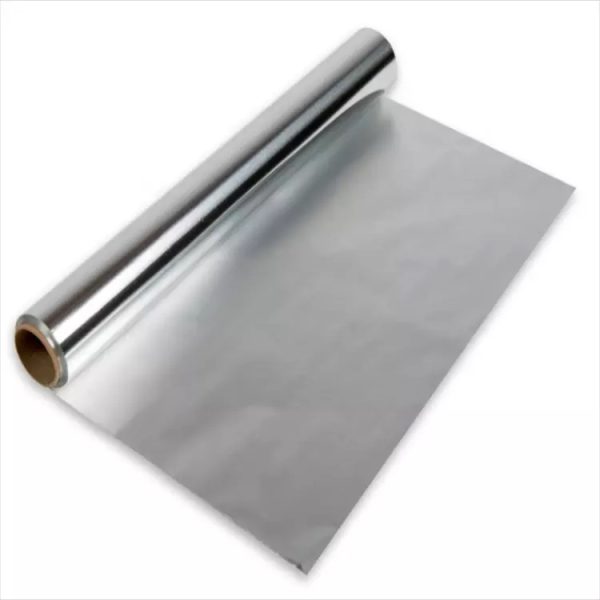
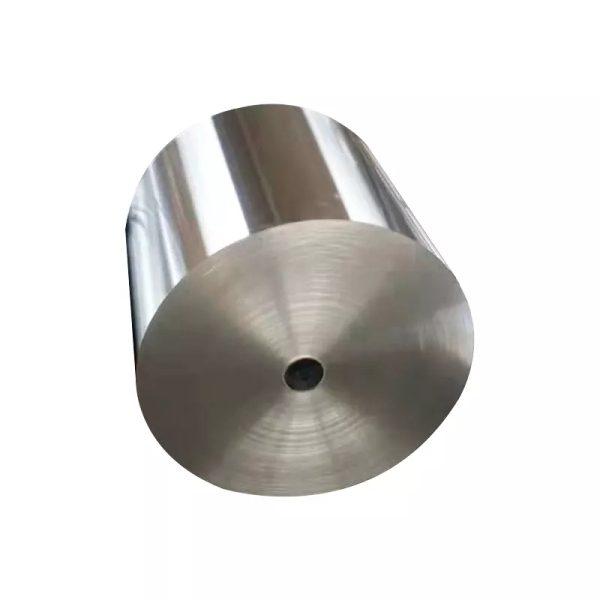
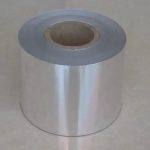
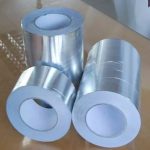
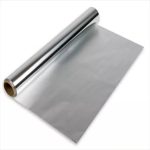
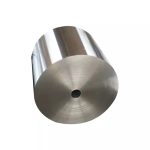
Aluminium foil
Aluminium foil is aluminium prepared in thin metal leaves with a thickness of less than 0.2mm (7.9 mils); thinner gauges down to 4 micrometers are also commonly used. Standard household foil is typically 0.016 mm (0.63 mils) thick, and heavy-duty household foil is typically 0.024 mm (0.94 mils). And the air conditioner foil can be thinner than 0.0047mm, and some food foil thinner than 0.002mm. The foil is pliable and can be readily bent or wrapped around objects. Thin foils are fragile and are sometimes laminated with other materials such as plastics or paper to make them stronger and more useful. It’s used industrially for a variety of purposes, including packing, insulation and transportation. At home, people use aluminum foil for food storage, to cover baking surfaces and to wrap foods, such as meats, to prevent them from losing moisture while cooking.
- Description
- Inquiry
Description
Aluminium foil is aluminium prepared in thin metal leaves with a thickness of less than 0.2mm (7.9 mils); thinner gauges down to 4 micrometers are also commonly used. Standard household foil is typically 0.016 mm (0.63 mils) thick, and heavy-duty household foil is typically 0.024 mm (0.94 mils). And the air conditioner foil can be thinner than 0.0047mm, and some food foil thinner than 0.002mm. The foil is pliable and can be readily bent or wrapped around objects. Thin foils are fragile and are sometimes laminated with other materials such as plastics or paper to make them stronger and more useful. It’s used industrially for a variety of purposes, including packing, insulation and transportation. At home, people use aluminum foil for food storage, to cover baking surfaces and to wrap foods, such as meats, to prevent them from losing moisture while cooking.
Regardless of your demand, Tubesolutions will provide specific high-quality aluminium foil products that suit your needs. Whether it is aesthetic changes or excellent mechanical properties, we will provide you with precise aluminium foil! Contact us now to learn more about our aluminium foil.
Product Details
| Product Name | Aluminium foil | ||
| Alloy/Grade | 1050, 1060, 1070, 1100, 1200, 2024, 3003, 3104, 3105, 3005, 5052, 5754, 5083, 5251, 6061, 6063, 6082, 7075, 8011 8079, 8021 | ||
| Temper | F, O, H, T | MOQ | 5T for customized, 2T for stock |
| Thickness | 0.014mm-0.2mm | Packaging | Wooden Pallet for Strip & Coil |
| Width | 60mm-1600mm | Delivery | 15-25days for production |
| Length | Coiled | ID | 76/89/152/300/405/508/790/800mm, etc. |
| Type | Strip, Coil | Origin | China |
| Standard | GB/ASTM ENAW | Loading Port | Any port of China, Shanghai & Ningbo & Qingdao |
| Surface | Mill Finish | Delivery Methods | 1. By sea: Any port in China2. By train: Chongqing(Yiwu) International Railway to Middle Asia-Europe |
| Certificates | ISO, SGS | ||
Parameters
| Property | Value/Comment |
| Specific gravity | 2.7 |
| Weight | At 6.35 µm foil weighs 17.2 g/m2 |
| Melting point | 660°C |
| Electrical conductivity | 37.67 m/mm2d (64.94% IACS) |
| Electrical resistivity | 2.65 µΩ.cm |
| Thermal conductivity | 235 W/m.K |
| Thickness | Foil is defined as metal measuring 0.2mm (or 200 µm and below) |
How Is Aluminium Foil Made?
Aluminum foil is produced by rolling sheet ingots cast from molten billet aluminium, then re-rolling on sheet and foil rolling mills to the desired thickness, or by continuously casting and cold rolling. To maintain a constant thickness in aluminium foil production, beta radiation is passed through the foil to a sensor on the other side. If the intensity becomes too high, then the rollers adjust, increasing the thickness. If the intensities become too low and the foil has become too thick, the rollers apply more pressure, causing the foil to be made thinner. The rolls of aluminum foil are then slit on slitter rewinding machines into smaller rolls. Roll slitting and rewinding is an essential part of the finishing process.
Classification of Aluminium Foil
Aluminium foil classified by thickness:
- T<001 – light gauge foil (also called double zero foil)
- 1≤ T ≥0.001– medium gauge foil (also called single zero foil)
- T ≥0.1mm– heavy gauge foil
Aluminium foil classified by composite material:
- Flux clad aluminium foil
- Zinc coated aluminium foil
- Bare aluminium foil
Aluminium foil classified by alloy grade:
- 1xxx series: 1050, 1060, 1070, 1100, 1200,1350
- 2xxx series: 2011, 2024
- 3xxx series: 3003, 3104, 3105, 3005
- 5xxx series: 5052, 5754, 5083, 5251
- 6xxx series: 6061
- 8xxx series: 8006, 8011, 8021, 8079
Aluminium foil classified by application:
| ● Aluminium Foil Coil For Fin Material ● Aluminium Clad Foil For Heat Transfer ● Aluminium Foil For Clad Tube Material ● Air-conditioner Foil ● Battery Aluminium Foil ● Tape Aluminium Foil ● Cable Aluminium Foil ● Pharmacy Aluminium Foil | ● Electronic Tag Aluminium Foil ● Honeycomb Aluminium Foil ● Household Aluminium Foil ● Electronic Aluminium Foil ● Packaging Aluminium Foil ● Container Aluminium Foil ● Hydrophilic Aluminium Foil ● Food Aluminium Foil |
How To Choose Aluminium Grade?
When we choose aluminium, it is important to note that choosing the right alloy is directly dependent on the properties and the specific using scenario. Before you purchase aluminium grade, it is vital to pay attention to flowing properties:
- Tensile Strength
- Thermal Conductivity
- Weldability
- Formability
- Corrosion Resistance
Applications of Aluminium Foil
Aluminum foil can be used for a wide range of applications:
- Automobile application
- Heat transfer (fin material, weld tube material)
- Packaging
- Packaging
- Insulation
- Electromagnetic shielding
- Cooking
- Art and decoration
- Geochemical sampling
- Ribbon microphones
Advantages of Aluminium Foil
- Aluminium foil has a shiny metallic luster, decorative.
- Non-toxic, tasteless, odorless.
- Relatively lightweight, the proportion is only one-third of iron, copper.
- Full-extension, thin, low weight per unit area.
- Blackout good, reflective rate of 95%.
- Protection and strong, so the package less susceptible to bacteria, fungi and insects infringement.
- High and low-temperature stability, temperature -73 ~ 371 ℃ without deformation sizing.
Why Use Aluminium Foil?
Aluminium foil is prepared in thin sheets and used in a wide range of applications, from everyday household foil to heavy-duty, heat-resistant industrial foil rolls. Aluminium foil is extremely pliable and can be bent or wrapped around objects with ease. Typical finishes are available in pack rolled (one side bright/one side matte), two sides polished and mill finish. Millions of tons of aluminium foil are used throughout the world to protect and package foods, cosmetics and chemical products. Aluminum is a durable and easily used material, making it an ideal option for several industrial applications.
How Do I Know Which Aluminium Foil To Use?
Standard Aluminium Foil – Great for wrapping lighter individual items and covering containers for storage. Our aluminium foil is 0.0005 – 0.0007 thick.
Heavy Duty Aluminium Foil – Is used in cooking situations for lining pans and cooking sheets. Great for moderate heat. The CHAL heavy duty foil is 0.0009 thick.
Extra Heavy Duty Aluminium Foil – Ideal for high heat situations and heavy wrapping situations. Great for lining grills and coming in direct contact with flames. To be used for wrapping heavy meats such as briskets and slabs of ribs. The CHAL extra heavy duty foil is 0.0013 thick.
Is It Safe to Use Aluminium Foil?
Aluminum is one of the most abundant metals on earth. It’s naturally occurring in most foods, including fruits, vegetables, meats, fish, grains and dairy products. Besides, some of the aluminium you eat comes from processed food additives, such as preservatives, coloring agents, anti-caking agents and thickeners.
Regardless, the aluminum content of food and medication isn’t considered a problem, as only a tiny amount of the aluminum you ingest is absorbed. The rest is passed in your urine feces. Furthermore, in healthy people, absorbed aluminum is later excreted in your urine.
So, the small amount of aluminium you ingest daily is considered safe.
Equipments For Making Aluminium Foil
3300mm + 2800mm “1+1” hot mill
- MINO auto control system imported from Italy, with high machining accuracy (thickness tolerance±0.2mm).
- High rolling force on 3300 rough hot rollings, to realize the rotated rolling with the excellent control of thickness and flatness.
- The auto control system enables the precise machining on 2800 finishing rolling.
- Able to operate separately to improve efficiency and reduce cost.
2800mm Cold Roll Machine
- The oil cold rolling mill of aluminium alloy plate and strip which designed and refitted by Italy Mino, has abilities of large rolling force, wide width cold rolling, plate finishing and roughening rolling.
- By adopting the latest technology coupled with computer simulation and finite element method, the maximum rolling force can reach 3000 tons and the maximum rolling width can reach 2600mm.
- It is the only one ultra-wide all-in-one plate and coil machine in domestic can compare with SWA’s 1600mm mill and Alcoa’s 2600mm mill.
Cold Roll Mill
- From ACHENBACH. Electrical drive, AGC and AFC system integration from MINO Italy. Supporting with gauge tester and BETA laser velocimeter well control the accuracy, to ensure the thickness tolerance and flatness requirements.
- Disc scissor frame and blade imported from Germany, to guarantee the shearing precision, which can well meet the requirements of width tolerance and edge burr rate.
- The nitrogen protected annealing furnace imported by a Germany junker company, which can guarantee the surface quality.
Our Advantages
- Pure primary ingot.
- Accurate dimensions and tolerance.
- High-quality surface. The surface is free from defects, oil stain, wave, scratches, roll mark.
- High flatness.
- Tension-leveling, oil-washing.
- With decades of production experience.


